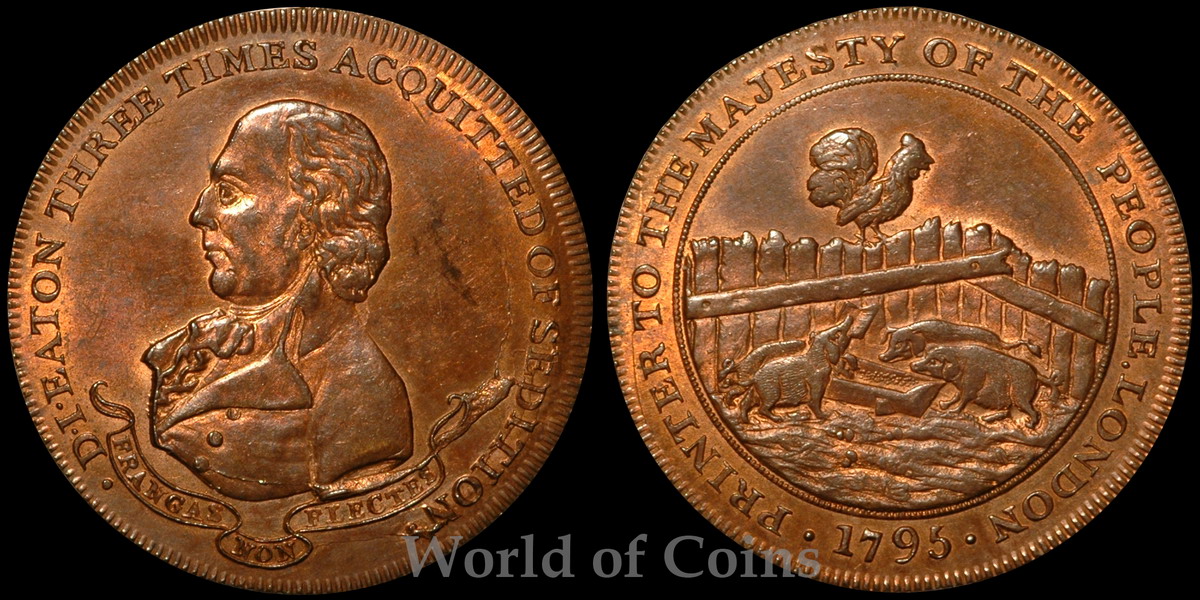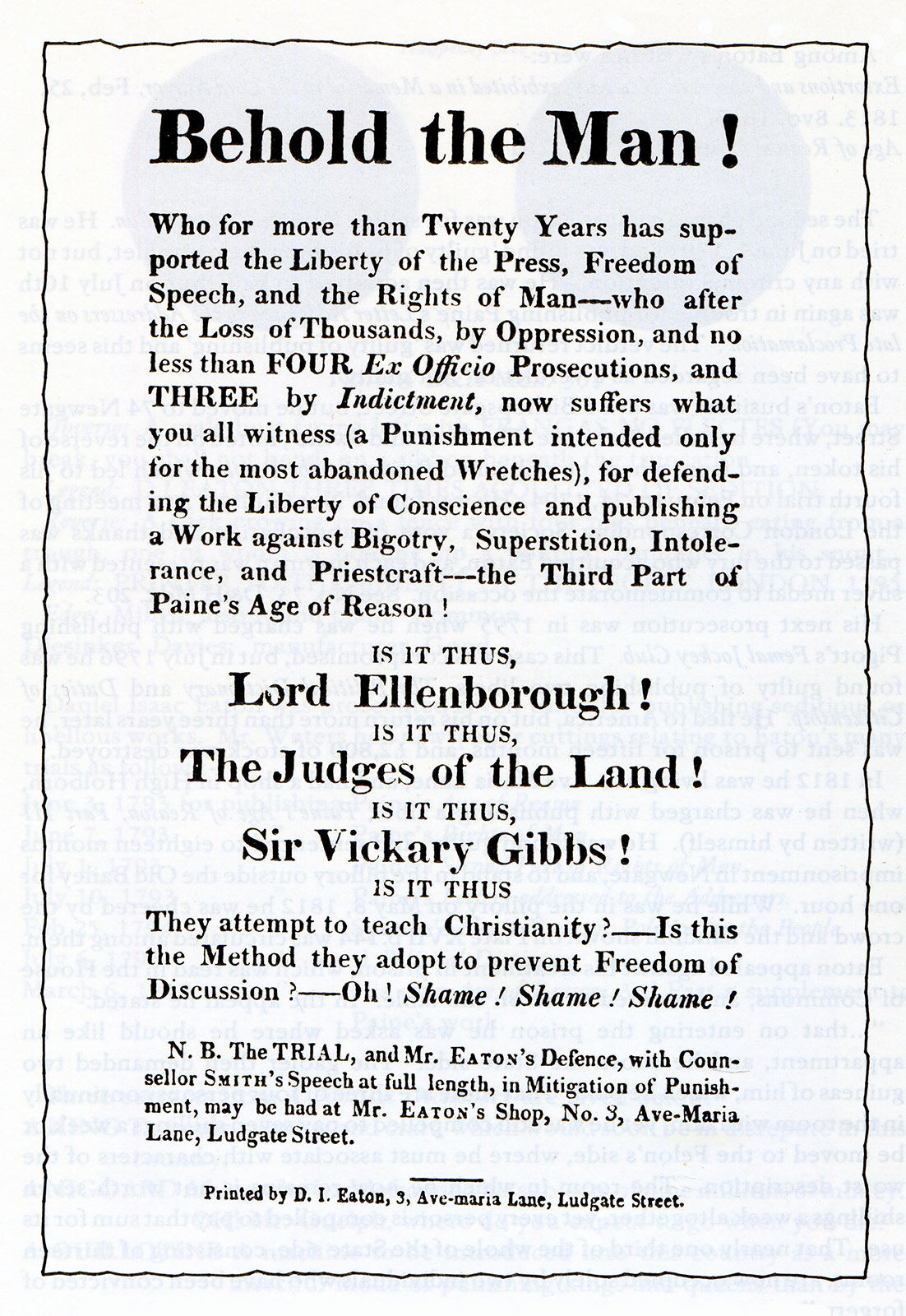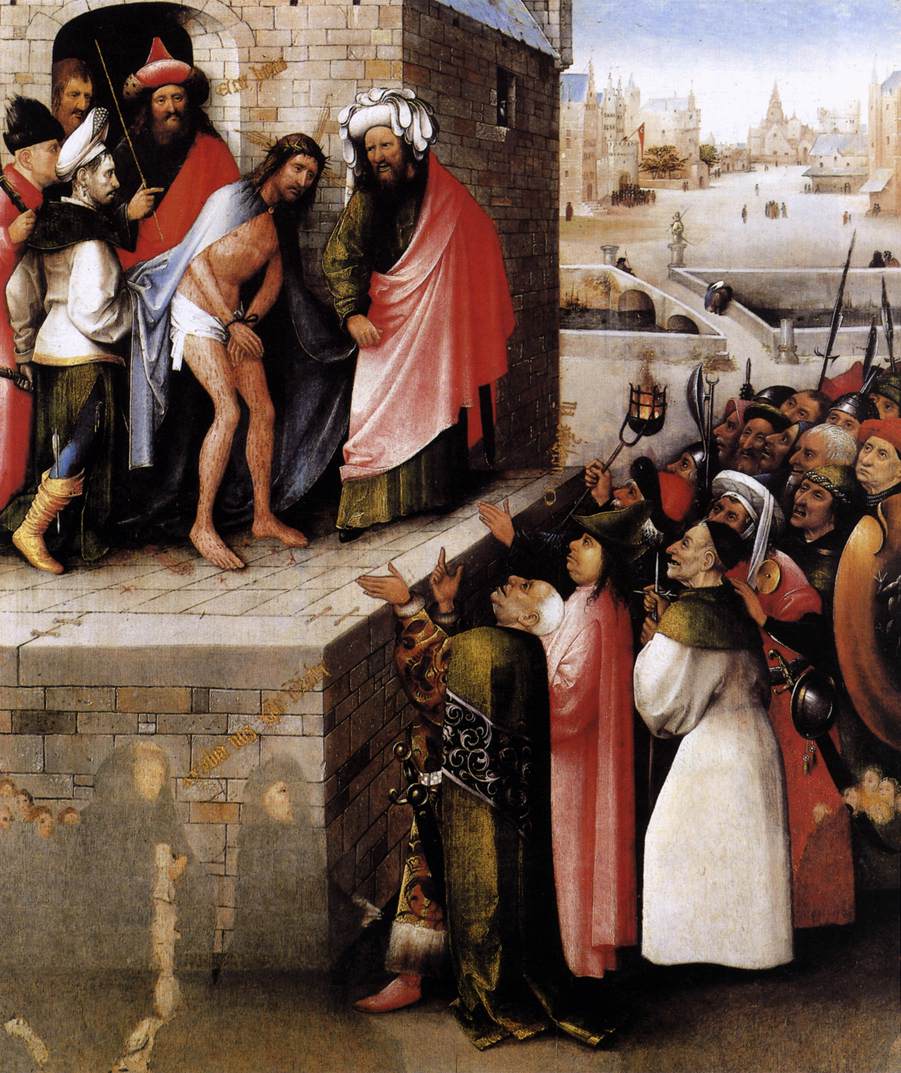
Online collections
monedastodas.com
All collections » Tokens » Eaton's Halfpenny
Bust of Daniel Isaac Eaton
(1753-1814). Below the bust is the motto: "FRANGAS NON FLECTES"
(You will break, but you will not bend). Circular legend: "DIEATON
THREE TIMES ACQUITTED OF SEDITION" / A cock crowing from a fence, below which
four pigs are eating from a trough, one of which holds a political pamphlet in
its mouth. Circle legend: "PRINTER TO THE MAJESTY OF THE PEOPLE. LONDON"
(Publicist of human greatness).
Ribbed edge Dalton & Hamer: 301.
Engraver Davies, maker Good.

Publishers and booksellers were the mouthpiece of an intelligent middle class who were sympathetic to the French Revolution. Eaton had his business at 81 Bishopsgate Street, but later moved to 74 Newgate Street, where he named his shop "The Cock and Swine", the plot of which was subsequently depicted on the back of the token. Eaton was actively engaged in publishing and selling seditious pamphlets and publications, for which he was repeatedly persecuted by the authorities. He was first arrested for sedition in 1793 for selling the second part of Thomas Paine's Rights of Man, but was acquitted. A month later, he was again arrested, this time for publishing a letter from Thomas Paine, but was again acquitted. Eaton was arrested a third time in 1794 for publishing the pamphlet Politics for the People, but this time it was justified. To commemorate this event, the London Correspondence Society issued a token with the names of the jurors who acquitted Eaton, naming him as a hero (Middlesex Political and Social Series D&H 203), and he himself issued this token.
Subsequently, Eton was repeatedly persecuted by the authorities, and was even forced to flee to America in 1796 for three years. On his return to the UK, he was immediately arrested and sent to prison for 15 months with confiscation of property in the amount of £28,000.

In 1812, Eaton was accused of publishing the third part of the libel "The Age of Reason", was found guilty and sentenced to 18 months' imprisonment in Newgate and standing at the pillory, during which leaflets in his support as a sufferer for freedom were distributed among the cheerfully cheering crowd. presses entitled "Behold the Man!" - translation into English of the Latin phrase "Ecce Homo" from the Gospel of John, said by the procurator of Judea, Pontius Pilate, who showed the people of Jerusalem Jesus Christ after the scourging, dressed in purple and crowned with a crown of thorns, wanting to arouse the compassion of the crowd:
“...Then Jesus came out wearing a
crown of thorns and purple.
And Pilate said to them: “Behold, the
Man!”
When the chief priests and ministers
saw Him, they cried out, “Crucify Him, crucify Him!”
Pilate tells them: “You take him and
crucify him; for I find no fault in Him.”
 Ecce
Homo, Jheronimus Bosch
Ecce
Homo, Jheronimus BoschThis plot became popular with Renaissance artists.
In September 1814, Eaton died at the age of 70 in poverty and contempt.